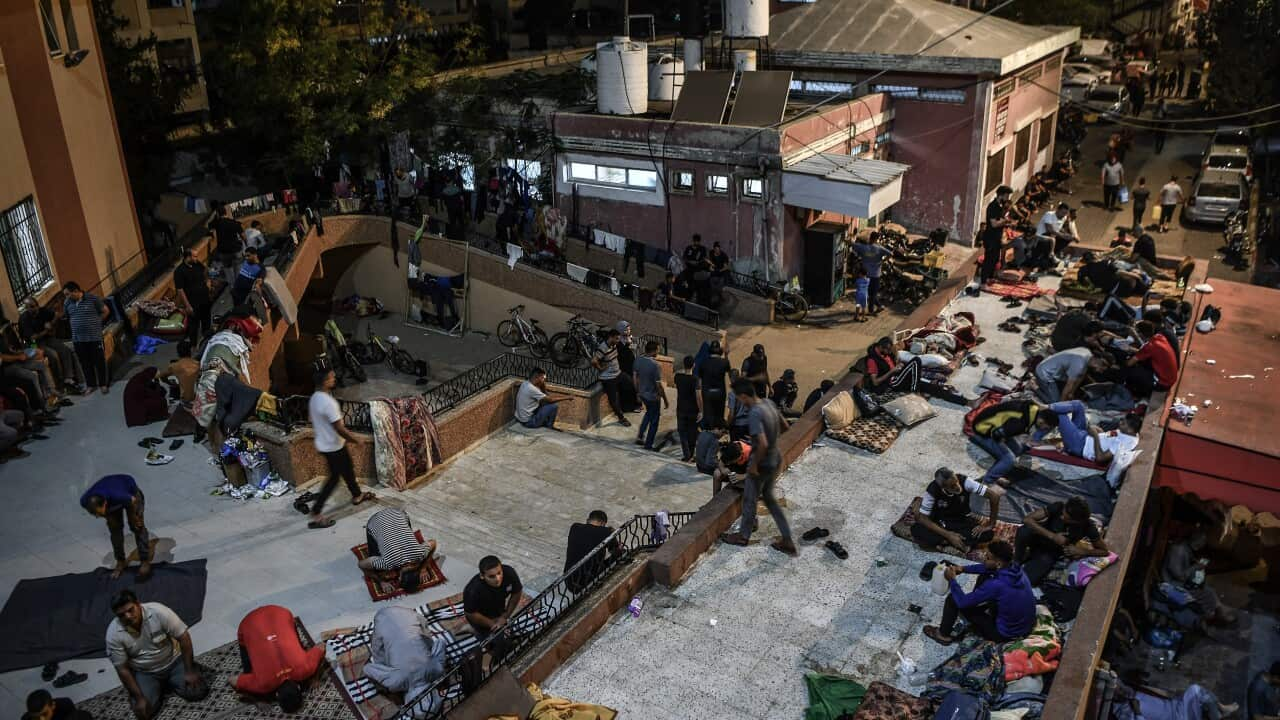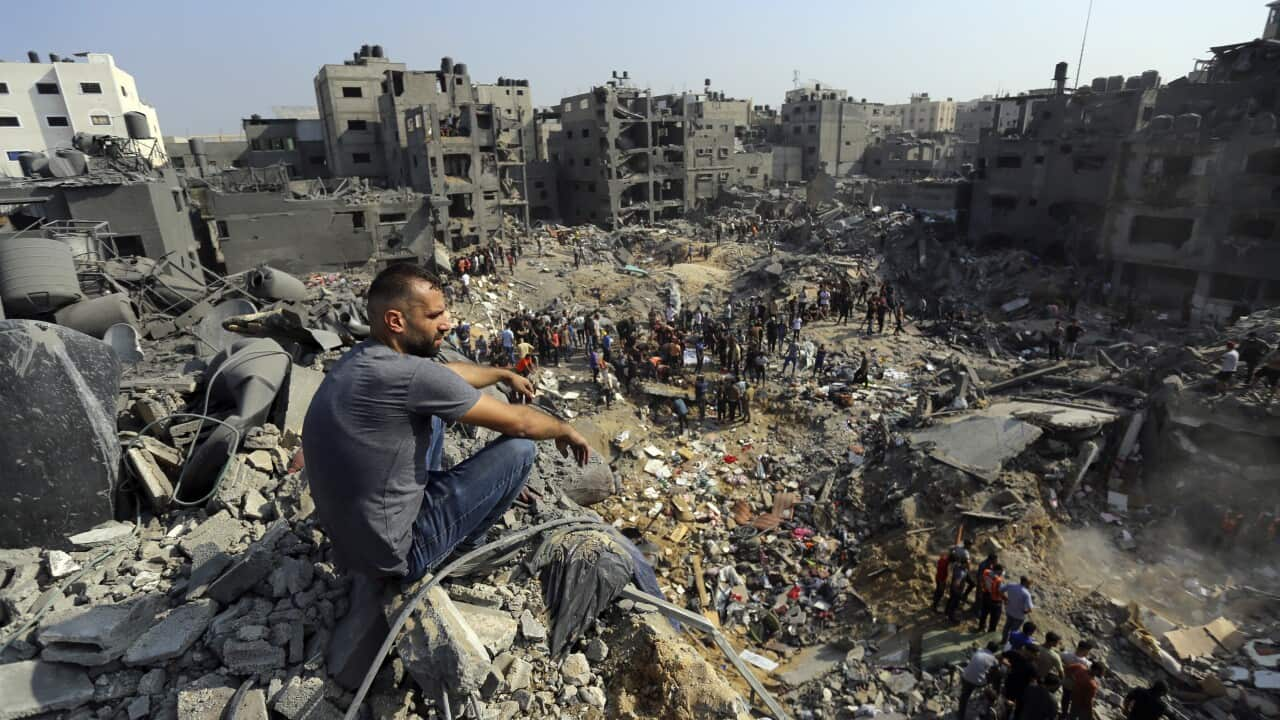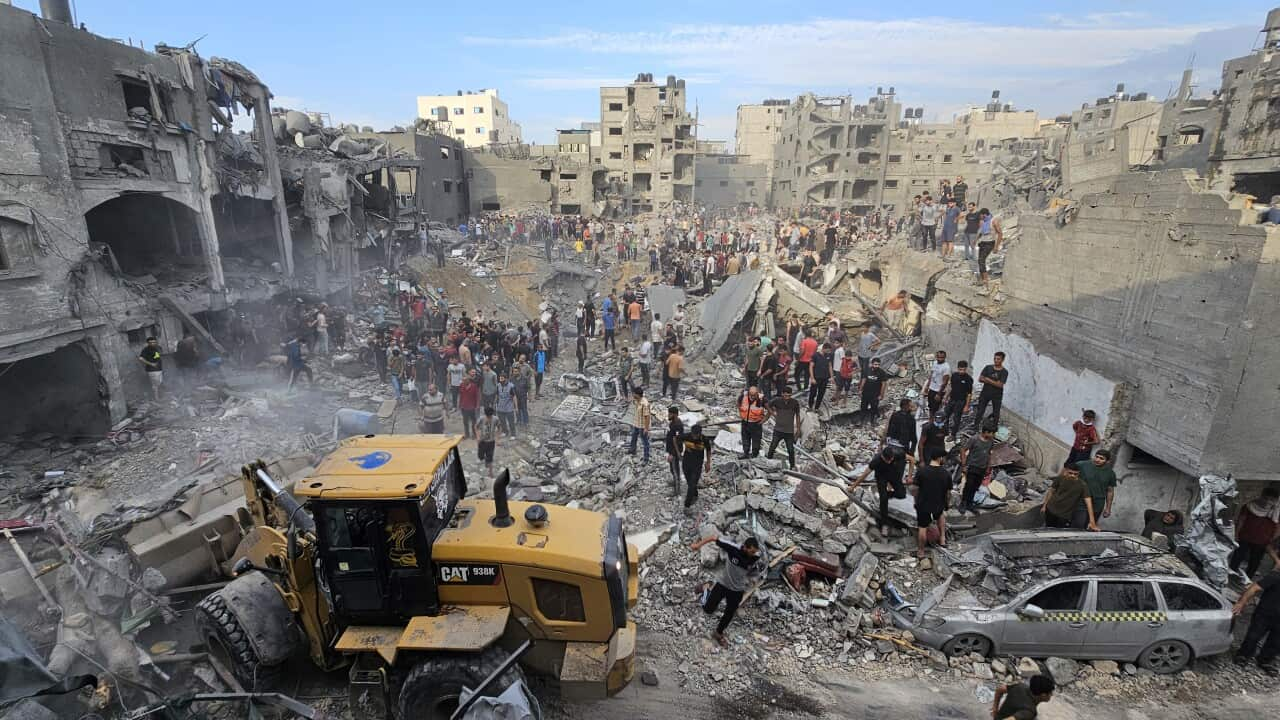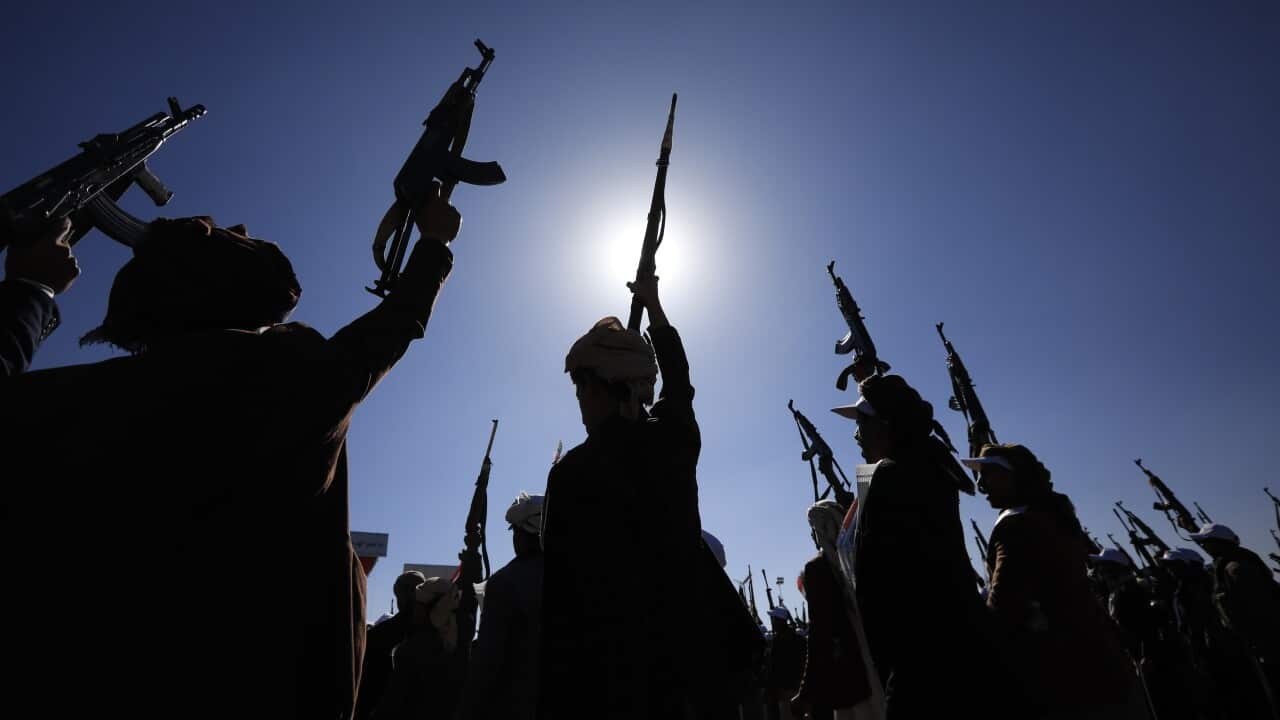Australians who evacuated Gaza after a border breakthrough are relieved to be heading home — but they fear for those they are leaving behind as the Hamas-Israel war rages on.
Foreign Minister Penny Wong confirmed 20 Australian citizens, one permanent resident, and two family members were among those .
It came after Qatar brokered a deal between Egypt, Hamas and Israel - coordinated by the United States - for the border crossing to open.
Mona Sakr was among the Australians who left via the Rafah border crossing - the only one not controlled by Israel.
As she waited to leave Gaza, Sakr told she had travelled there to see her brothers and sister. She was relieved to be leaving, but feared for her family.
"I'm very sad that all at the same time because I'm leaving my family behind with no food, no water and in a very scary situation," she said.
"They're not even in their houses, they moved from one house to another.
"I can't describe the situation there ... no one, no human being can handle this."
Gaza has been under heavy Israeli bombardment since war broke out , the , on southern Israel on 7 October.

Australian Mona Sakr had travelled to Gaza to visit her brothers and sister. Source: SBS News
She said the sound of bombing was terrifying.
"You just jump from one place to another, finding a safer place.
"I was shaking all day, all night; screaming, crying."
Abdallah Dahlan was also at the border crossing. He was born in Gaza and moved to Australia in 1966.
Dahlan said life in Australia is peaceful and that he had "never been in a situation like this".
"Quite a few times rockets fell around my place ... it's awful," Dahlan said.
"I don't want to go too much into it; I really don't want to remember it. It's just so bad, so bad."

Abdallah Dahlan said rockets fell around where he was staying in Gaza on several occasions. Source: SBS News
In weekly diary entries seen by SBS News, the father wrote it had been 12 years since they had visited their relatives and had decided to travel there amid "relative calm in the region".
Instead, their trip turned into a struggle for survival, with the father writing his family feared they could "die at any time".
"Our lives are at stake, and we are so looking forward to returning to Australia," he wrote in one entry.
The family had their hopes of leaving through the Rafah border crossing dashed on several occasions but on Wednesday, they were finally able to pass through.
"We made it to Egypt ... will be in Cairo in a few hours," the father said in a text message seen by SBS News.
At least 320 foreign citizens on an initial list of 500, , were among those to cross into Egypt.
As well as Australians, passport holders from Austria, Bulgaria, the Czech Republic, Finland, Indonesia, Italy, Japan, Jordan, the United Kingdom and the United States were evacuated.
Gaza border officials said the border crossing would reopen on Thursday so more foreigners could leave. A diplomatic source said some 7,500 foreign passport holders would leave Gaza over about two weeks, the Reuters news agency reported.
Wong said about 20 Australian citizens plus family members remained in Gaza. The Department of Foreign Affairs and Trade said it was assisting 65 people still there.
"We will keep working to ensure we get as many of that Australian cohort out as possible," she told ABC radio on Thursday.
"Please be sure, we will continue to press for all of you to cross the border in Gaza. We will continue to do what we've been doing for the last few weeks, which is to engage with all so that we can ensure safe passage," Wong told reporters on Thursday.
to allow aid into, and evacuations out of, Gaza. She confirmed returns to Australia would be free of charge.
Calls to pause hostilities
Prime Minister Anthony Albanese reiterated calls for a humanitarian pause of hostilities.
He also condemned "hatred in any form" in Australia with reports that Jewish students were scared of being targeted.
Money had been provided for both Jewish schools and synagogues as well as for the Islamic and Palestinian communities, with women who wear hijabs regularly getting abused and vilified because of their dress, Albanese said.
The significant escalation is the latest in a long-standing conflict between Hamas and Israel.
Hamas is a Palestinian military and political group, gaining power in the Gaza Strip since winning legislative elections there in 2006.
Its stated aim is to establish a Palestinian state, while refusing to recognise Israel’s right to exist.
Wong described Hamas as a "craven terrorist group" and said terrorism "must be confronted", but urged Israel to listen to international calls for restraint in its response.
"We know that it has burrowed itself into civilian infrastructure. We know that Hamas is using civilians as a shield," she said.
"What I would say is all of these challenges do not lessen Israel's obligation to observe international law and the rules of war. Even in war, there are rules … The international community will not accept ongoing civilian deaths."
- With additional reporting by SBS News Arabic and the Australian Associated Press.













